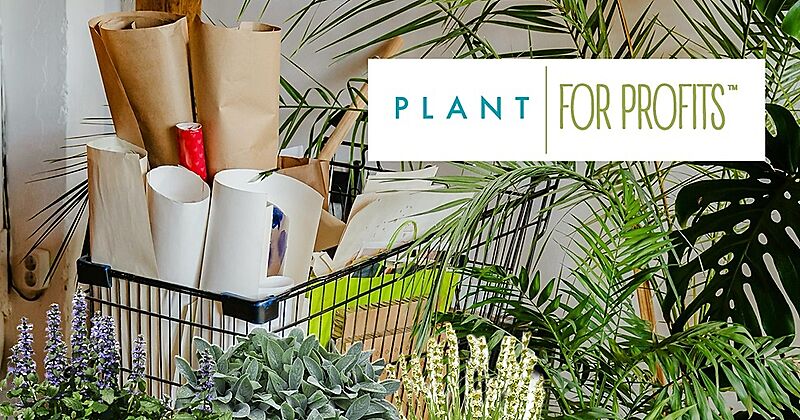Do You Need High-Tech or AI to Innovate or Disrupt in the Horticulture Industry?

Plant For Profits Column, Leslie F. Halleck
I was thinking lately about some of the common issues I’ve been working on with a few clients in garden center retail…and how many of the day to day challenges or opportunities really come down to the simplest forms of functionality and innovation. Not reinventing the wheel, not creating new products, not inventing new software or an app, or employing the latest AI tech…rather, disrupting your market or industry by just doing the same thing everyone else is doing, or what you're already doing…just doing it better. For those of us working in the horticulture industry, innovation doesn’t always have to involve technology.
New tech and AI is currently dominating the conversation around sort of everything in business, which can be stressful and cause a lot of anxiety for both business owners and employees (or job seekers). All of which is totally understandable. And of course, we all use technology these days to run our businesses and provide services. No doubt AI and other tech is going to continue to shape what that looks like. That said, I think many in the horticulture industry perhaps focus too hard on technology as the only way to innovate; when there are a lot of non-tech-related actions they could and should take to make their businesses more effective and profitable.
If you pay attention to the CEA (Controlled Environment Agriculture) space, you'll have noticed a wave of bankruptcies and closures over the last couple of years. There is now a lot of uncertainty in this segment of the industry. This was a space that was previously getting a lot of large infusions of venture capital investments, specifically on building a lot of high tech spaces and setups. It seemed, in my observation, all the focus was on the cool new tech, not the actual practice of horticulture; knowing how to successfully grow plants/crops and then successfully market and sell them. Which is still what growing food in controlled environments really comes down to. Many high tech cultivation facilities I visited over the last ten years looked great and had a lot of high tech gear...what they didn't seem to have as much of were people who actually knew and understood plant science as well as horticultural cultivation techniques. The cool tech and tools were there, but the horticulture and human sales skills were missing.
Horticulture involves intuiting and planning what plants will need, before they need it, to grow successfully to harvest. That intuition and planning - as well as ongoing cultivation- that gets put into practice in application is the result of years of study and hands on experience with plants. Both understanding the science behind how they grow, and how to manage that in an artificial environment. I teach a lot of plant science and horticulture, as well as indoor and controlled environment growing. What I tell my students is that sure I'm teaching them botany and horticulture, but mostly I'm teaching them observational skills as they relate to plants. You need to combine your plant knowledge with keep observation to get desired results.
Sometimes you don’t need to create new products or services - or technology - to grow a more profitable business. You might just need a new audience instead!
When it comes to being successful and innovating in the green industry, keep observation skills will serve you very well. You need to observe who else is doing what, and how they are doing it. Or, are there gaps in the market place. Is there as space for you to excel simply because others either just don't understand what they are doing, or don't care to do it well.
Innovation doesn’t have to involve a new invention, or coding a new piece of software, app, or grow light. Oftentimes innovation and disruption in a very hands-on tangible tactile industry like ours simply comes down to doing something that everybody already does, but doing it better. Disruption in an industry can simply be you offering amazing customer service when nobody else does (which let’s face it, isn’t that hard these days!) Creating and cultivating better experiences and outcomes for your customers might just involve talking to them - especially if other providers or retailers in your market aren’t doing a good job of relating to and communicating with their customers. That just boils down to good sales skills...which are really just good observation and communication skills.
Often when I’m working with a
client whose business is struggling, there is often a knee jerk impulse
to completely change their products or services.”What we have just isn’t
selling, so I need something new.” This topic comes up often when clients feel they are “competing” with many other similar businesses in their market, or if they feel they are being smothered by a number of big box stores. So again, there is a reactionary need to either give up, or feel like the business has to completely reinvent what it does. However, what I often discover is that it’s not the product
or services that’s the problem; and it's usually not the competition or big box stores either. It’s the fact that there is no plan in
place with which to successfully cultivate and sell what they have, or a plan to sell it to the right person.
Do you need to completely change your product selection or services? Or
are you not targeting the right customers? OR, as is often the case,
you’re just not doing any real marketing. You might not need new
products; you might just need new customers! That mental shift in itself can result in a lot of innovation for your company.
In such cases cool new technology or AI may not help you dig out of a hole. Simply getting in touch with who it is you’re actually able to serve best, and making sure that your products, services, and prices are in line with what that customer needs and wants, could be a very effective lo-fi way to reinvigorate your business.
Being an innovator, at its core, is really just being a thought leader. Being a thought leader involves thinking critically and creatively about how to better serve your market, and then actually putting those ideas out into the world. You don't necessarily have to invent to innovate. To become an innovator, all you need to do is take those ideas and put them into action.


